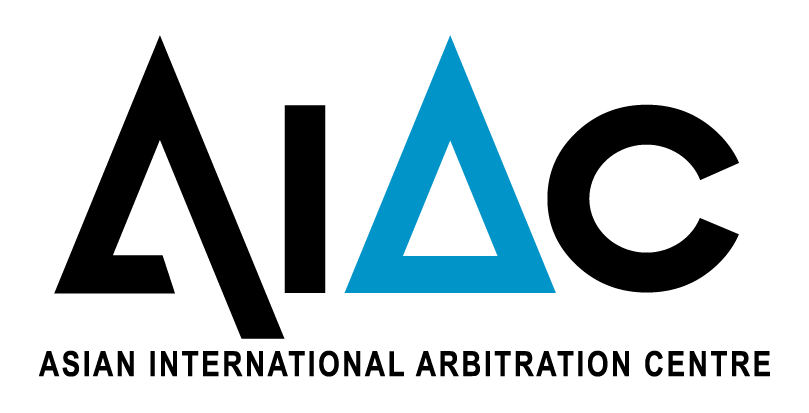ANNOUNCEMENT
March 11, 2016
KLRCA HOSTS MALAYSIA’S INAUGURAL INTERNATIONAL INVESTMENT ARBITRATION CONFERENCE (KIIAC 2016)
![From Left to Right: Highness Prince Dr Bandar bin Salman bin Mohd Al Saud (Honorary President of the Gulf Arab States Lawyers Union), YB Puan Hajah Nancy Shukri (Minister in the Prime Minister’s Department), His Excellency Dato’ Professor Dr Rahmat Mohamad (Secretary-General, Asian-African Legal Consultative Organisation [AALCO]), Brigitte Stern (Professor Emeritus of International Law at the Sorbonne Law School in Paris) and Datuk Professor Sundra Rajoo (Director of the Kuala Lumpur Regional Centre for Arbitration)](uploads/imguploadck4f484fdfbf4ab275463008728f4b6a7e.jpg)
.Kuala Lumpur, 11 March – The Kuala Lumpur Regional Centre for Arbitration (KLRCA) hosted its inaugural KLRCA International Investment Arbitration Conference (KIIAC 2016) in collaboration with the Institute of Malaysian and International Studies (IKMAS). The conference which ran from 10th to 11th March 2016 was held at the centre’s state of the art premises, Bangunan Sulaiman.Investment arbitration, based on investment treaties such as the Trans-Pacific Partnership Agreement (TPPA) is set to make a huge impact in the Asia Pacific region.“An increasing globalised world has induced deep and significant changes in South East Asian countries’ policies regarding foreign investments,” said Datuk Professor Sundra Rajoo, Director of the Kuala Lumpur Regional Centre for Arbitration.
He further stated that this has in turn created a continued growth of arbitration cases in Asia. This includes disputes brought by investors against States, both within and outside the region, have also been on the rise. Often, the best resolution to such disputes is via Asian arbitration centres, given their geographic proximity and cultural familiarity to Asian parties.
Gracing the launch were YB Puan Hajah Nancy Shukri, (Minister in the Prime Minister’s Department), His Highness Prince Dr Bandar bin Salman bin Mohd Al Saud (Honorary President of the Gulf Arab States Lawyers Union), and His Excellency Professor Dr Rahmat Mohamad (Secretary-General, Asian-African Legal Consultative Organisation [AALCO]).
The one and a half day investment arbitration spectacle, kicked off with a keynote speech delivered by the highly respected academic and arbitrator, Brigitte Stern, Professor Emeritus of International Law at the Sorbonne Law School in Paris. This was followed by a full day of presentations and knowledge sharing encompassing three interactive sessions; ‘Promoting investments and administering investment disputes – tales from regional and international institutions’, ‘ Investment Arbitration – the practitioner’s point of view’, and ‘Doctrinal developments in investment arbitration’.
Twenty-three illustrious presenters ranging from eminent professors and renowned arbitrators from leading regional and international institutions took stage to deliver their expert thoughts and opinions whilst addressing the complex issues raised by investor-State arbitration, with a dedicated focus on the Asia Pacific region, following the signing of the Trans-Pacific Partnership Agreement (TPPA).
Close to two hundred delegates, from across the world converged here in Kuala Lumpur to participate in this conference, widely labelled as one of biggest of its kind to be held in Asia. KIIAC 2016 provided an excellent opportunity for delegates to evaluate a wealth of global information and exchange insights pertaining to various facets of the investment arbitration spectrum including policy, governance, advocacy and research.
/ENDS
*Extensive highlights of KIIAC 2016, will be featured in KLRCA’s upcoming newsletter (January – March 2016), Issue 21.
Editors Notes:
1. KLRCA is a non-profit, non-governmental international arbitral institution established in 1978 under the auspices of the Asia-African Legal Consultative Organisation (AALCO). It is the first regional centre established by AALCO in Asia to provide institutional support in a neutral and independent venue for the conduct of domestic and international arbitration proceedings in the region.
For more information, please visit www.klrca.org
2. The Institute of Malaysian and International Studies (IKMAS) was established on 1 April 1995 as a centre for research in the social sciences at The National University of Malaysia (UKM). On 15 August 2013, the Institute was merged with the Institute of Occidental Studies (IKON) and the Institute of West Asian Studies (IKRAB). Following the restructuring, IKMAS now has four centres focusing on globalization and occidentalism applied to four regions: (1) Asia; (2) the Occidental regions; (3) Latin America; and (4) West Asia. In addition, the study of Africa will be included in the future.
For more information, please visit www.ukm.my/ikmas

